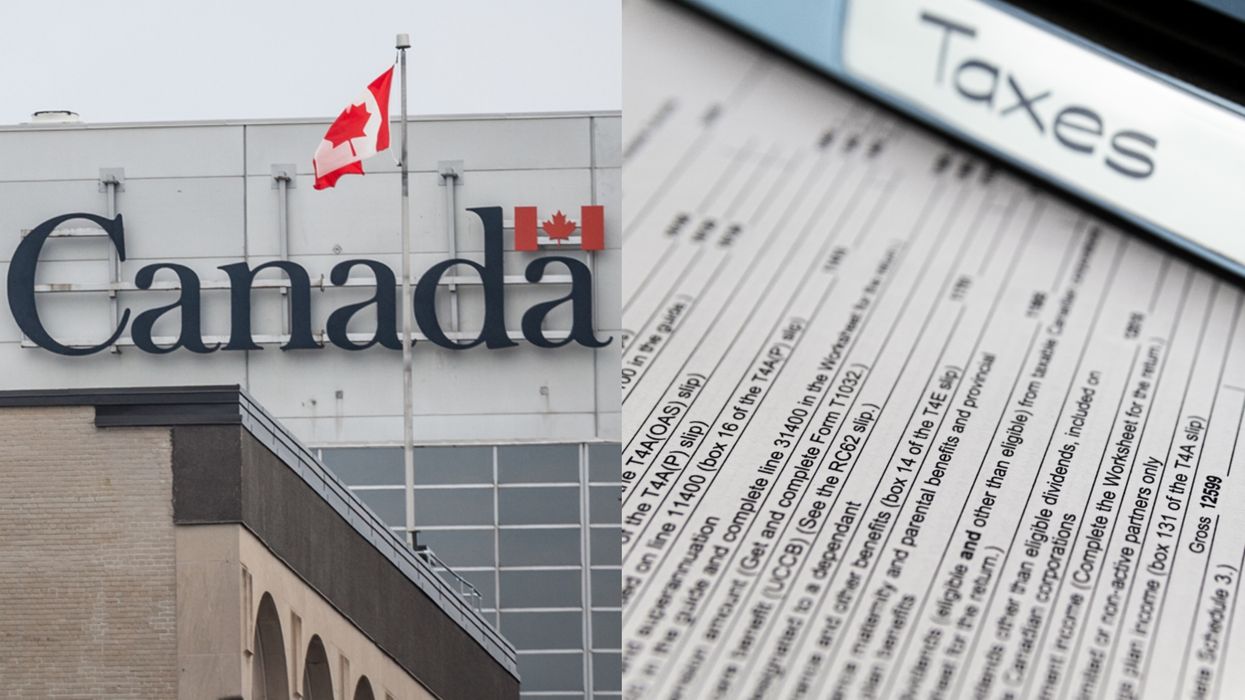The CRA Is Debunking So Many Tax 'Myths' & There Are Some Truly Wild Rumours
Ahead of tax season, the Canada Revenue Agency (CRA) is debunking some of the most common tax myths in Canada.
The CRA warns that misunderstanding tax laws could leave you exposed to “serious financial and legal problems,” so here are some of the most common myths to be aware of so you can stay out of trouble.
Editor's Choice: CRA Confirms That Some Canadians Have Received Incorrect Tax Slips This Year
MYTH: You can refuse to pay taxes
Perhaps unsurprisingly, the CRA says this is totally untrue.
The agency acknowledged a rumour that suggests “federal income tax is unconstitutional and you can therefore refuse to pay [it],” but states firmly that this is not the case.
A number of groups continue to claim that there are lawful ways to avoid tax, but the CRA says this could land you in hot water.
In addition to late-filing penalties and interest, you could even face imprisonment for trying to avoid paying up.
MYTH: Tax laws can’t be enforced
While the CRA acknowledges that voluntary compliance is “the cornerstone of Canada's self-assessment taxation system,” it notes that this doesn’t mean paying your taxes is voluntary.
“This simply means that the government expects you to respect the law and comply fully with your tax obligations,” it says.
The law can be enforced if necessary, as the Income Tax Act allows penalties for offences like tax evasion, failure to pay taxes, failure to disclose income, or refusing to file a tax return.
MYTH: The CRA won’t check if you don’t pay
The CRA acknowledged that some people claim they have “not filed a tax return in years” and say they have not faced any consequences.
The agency warns Canadians to be wary of claims like this, noting that the individuals may be lying. It also says that while the CRA may not have taken action yet, it doesn’t mean they won’t.
Those who fail to file their tax returns, or who fail to comply with a court order to file, could face fines between $1,000 and $25,000 and up to 12 months imprisonment.
“Audit, prosecution, and other enforcement activities are carefully targeted on the small minority of taxpayers who attempt to evade their obligations,” says the CRA.
MYTH: You can force the CRA to lower your taxes
The CRA explained that it actually has no power to impose, remove, raise or lower taxes, or decide how tax money will be spent.
“These powers belong to the elected representatives of the Canadian people in Parliament and in provincial legislative assemblies,” it says.
This means the agency itself, nor any of its employees, are unable to alter your taxes at all.
MYTH: You can get a card that proves you’re exempt from paying tax
If you’re ever offered a "get out of paying your taxes" card, don’t even consider it.
“GST/HST legislation does not provide tax exemptions for any individuals, and any card claiming such an exemption is a fraud,” says the CRA.
The only exception relates to Indigenous individuals with "Indian" status who, under the Indian Act, may not be required to pay GST/HST when purchasing some goods and services.
MYTH: Lottery winners must pay tax to claim their prize
The CRA also reminded Canadians to be aware of scammers who will tell you that lottery winners must pay taxes to the government before claiming their prize.
This is likely a scam, because “you do not have to pay the CRA any taxes or fees of any kind on lottery and sweepstakes winnings in Canada.”
If you do receive an email, letter or phone call making this kind of suggestion, you should call the police “immediately,” warns the agency.
